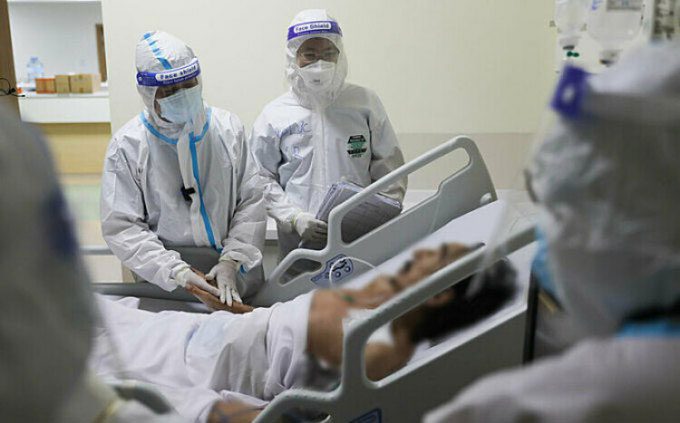Feelings of restlessness, anxiety, memory decline, cold extremities, fatigue, palpitations, and shortness of breath are all symptoms of post-COVID-19 autonomic nervous system disorders.
The body has two nervous systems: the voluntary (somatic) and involuntary (autonomic). While the somatic nervous system governs conscious activities, the autonomic nervous system regulates functions such as heart contractions, lung function, and sweat production, even when the body is asleep, intoxicated, or unconscious. Autonomic nervous system disorders affect the body’s automatic functions, including heart rate, blood pressure, sweating, and digestion. This condition is becoming increasingly common; although it is not life-threatening, it significantly impacts daily activities.
Dr. Nguyen Huy Hoang from the Vietnam-Russia High-Pressure Oxygen Center, Vietnam-Russia Tropical Center, Ministry of National Defense, stated that symptoms of autonomic nervous system disorders can appear during the treatment of COVID-19. This condition may persist and evolve complexly for weeks or even months after a patient tests negative.
Autonomic nervous system disorders have several groups of symptoms. Firstly, patients often experience feelings of restlessness, anxiety, emotional sensitivity, and difficulty sleeping. This situation is quite common during COVID-19 and in some cases, “unjustified emotional sensitivity” after testing negative.
Secondly, individuals recovering from COVID-19 may experience symptoms related to insufficient blood flow to the brain, such as headaches, dizziness, unsteadiness, lack of confidence, and particularly memory decline and poor concentration. The third group includes symptoms of fatigue, weakness in limbs during work or physical activity. Many cases report a feeling of weakness in their arms and legs that resolves after a short period. The fourth group of symptoms includes cold extremities accompanied by excessive sweating. Many individuals find that their back and chest are soaked with sweat during the night.
Some individuals also experience intermittent palpitations, heart racing, and feelings of choking or shortness of breath. Doctors believe these issues are related to the dysfunction of heart and bronchial contractions.
Post-COVID-19, patients may experience gastroesophageal reflux, especially those who had this condition previously. Women may also face menstrual irregularities, hair loss, and skin deterioration due to hormonal imbalances or deficiencies. Menstrual cycles may become prolonged, shortened, or even absent for several months.

Doctors treating and caring for COVID-19 patients at the COVID-19 Resuscitation Center in Ho Chi Minh City Oncology Hospital on September 13. (Photo: Quynh Tran)
Doctors believe that two common complications of COVID-19 are inflammatory reactions and blood clotting that spread from the lungs throughout the body, leading to autonomic nervous system disorders. Additionally, COVID-19 does not only attack the lungs but also affects the nervous system, nerve conduction, causing damage and inflammation.
Treatment for post-COVID-19 autonomic nervous system disorders involves gentle, regular, and moderate physical activity, adjusting dietary habits to include more fruits, fish, and antioxidant-rich foods. It may also include supplementation with vitamins, omega-3, zinc, vitamin D, minerals, or some products that help reduce stress, such as herbal sedatives that enhance cerebral circulation.
One method that can be applied to treat this condition is hyperbaric oxygen therapy. Patients are placed in a chamber filled with pure oxygen at a pressure approximately 1.5-2 times greater than normal, which helps distribute oxygen more effectively to tissues and organs.
Psychological therapy is also a method for treating autonomic nervous system disorders. Activities that provide a sense of pleasure, such as painting, listening to music, gardening, and cooking, can be beneficial. Doctors note that with proper treatment, symptoms of autonomic nervous system disorders are likely to stabilize within approximately 3-4 weeks.


















































